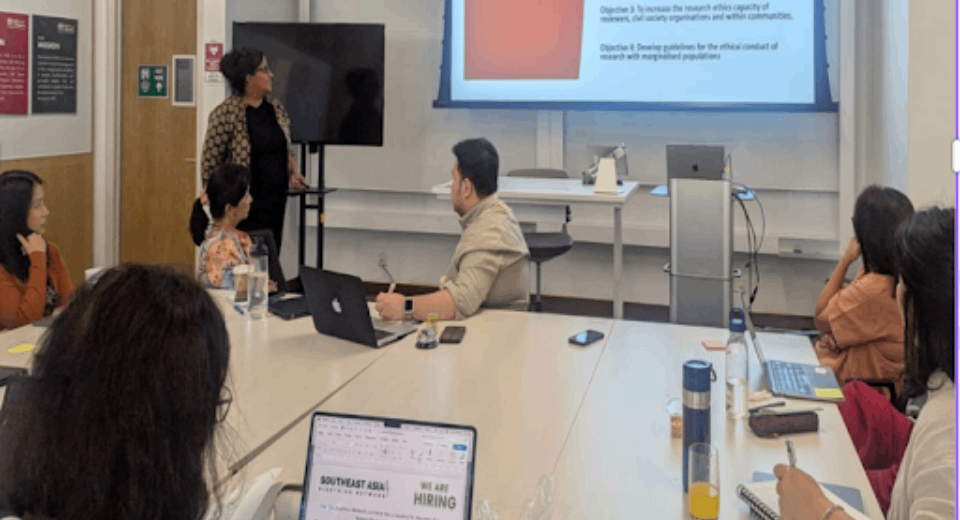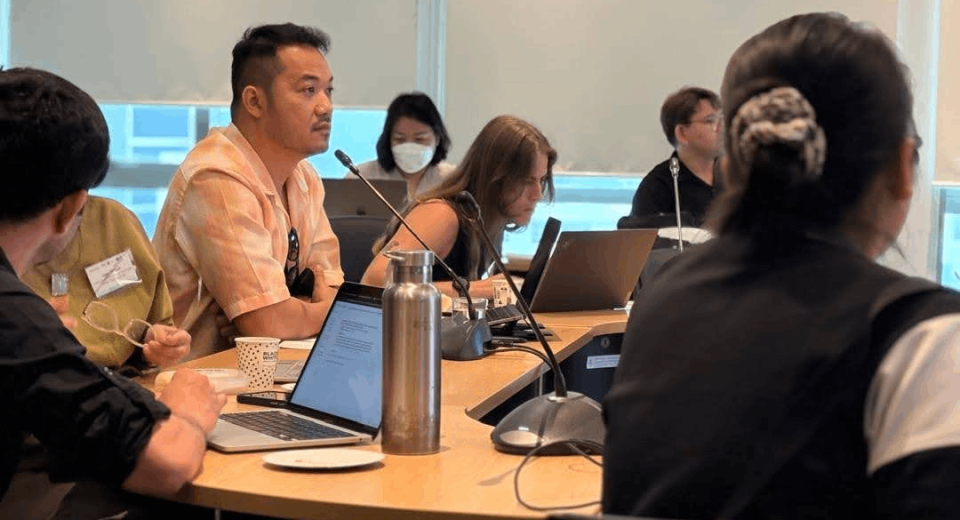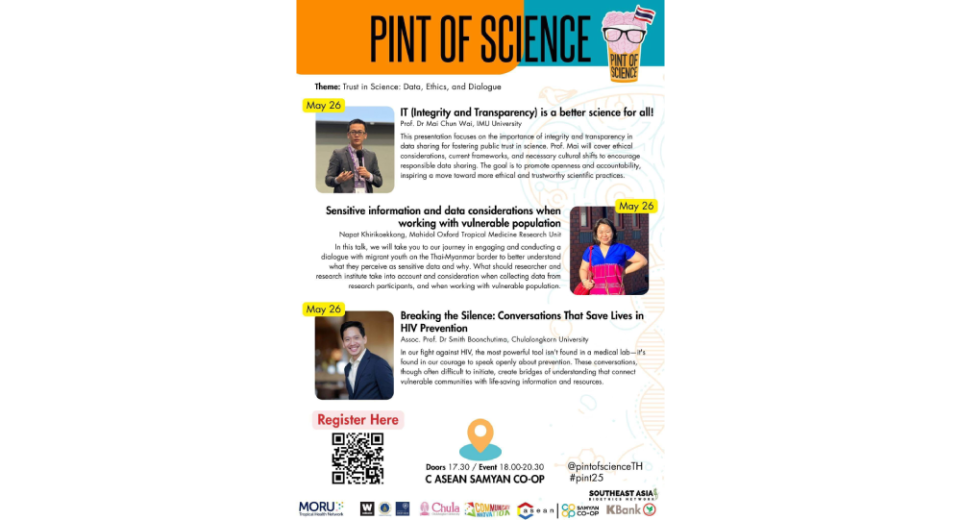
Our Story
The Southeast Asia (SEA) Bioethics Network was established in 2020-2021 by a group of scholars based in SEA, who successfully obtained the Wellcome Trust Research Development Award to develop the network. Their shared goal is to promote an empirically-informed and practice-oriented approach to bioethics from a SEA perspective, through collaborations with stakeholders in the region and beyond. The network currently focuses on addressing ethical issues related to healthcare for marginalised mobile populations and emerging technologies like genomic medicine, gene- and cell-based therapies, and AI-driven health activities. It is committed to supporting bioethics scholars and researchers in SEA and establishing a research agenda that brings to the forefront unheard voices to enrich current bioethics discourses.

Spotlight
Check out the latest activities, achievements, and updates from the Southeast Asia Bioethics Network! Stay informed about our events, podcasts, research, and initiatives as we bring attention to the voices and work shaping bioethics in Southeast Asia.
Regional Working Group on Research and Healthcare Ethics Relating to Migrant Populations Report
The SEA Bioethics Network held a workshop at the end of April 2025 to kickstart a regional working group focused on research and healthcare ethics for migrant populations.Data Ethics Workshop Report
A dynamic workshop held in Bangkok entitled “Advancing Solutions to Enable Effective, Ethical, and Equitable Data Sharing” recently brought together leading voices in global health, bioethics, and data governance.Pint Of Science
Join The Pint of Science, which is a global network of scientists, for a session on "Trust in Science: Data, Ethics and Dialogue" to broaden your perspective of these areas. This event is co-organised with the Southeast Asia Bioethics Network.






